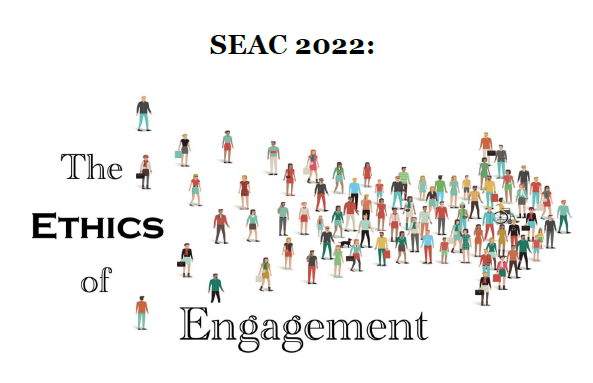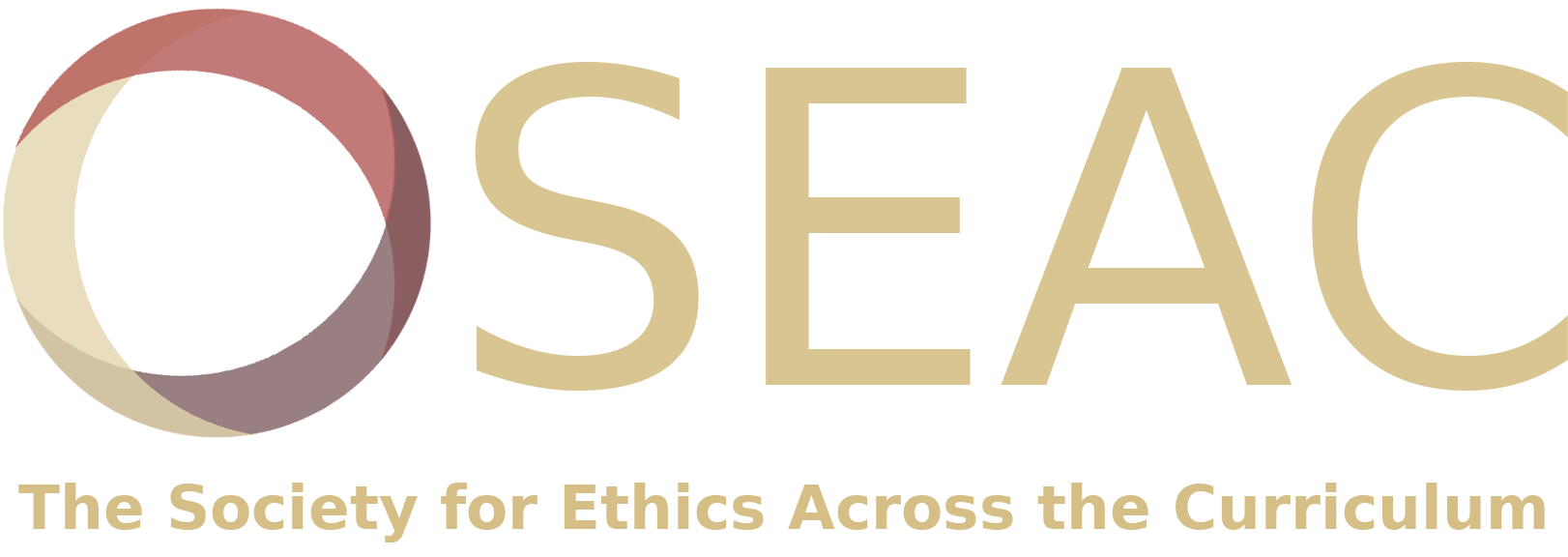
Concurrent Session 7A
Location
A: Room 111 (Bryant Hall, first floor)
Start Date
8-10-2022 10:25 AM
End Date
8-10-2022 11:35 AM
Description
- Embedding Ethics Modules in Computer Science and Engineering Courses / Adam Thompson, University of Nebraska, Lincoln; Zach Wrublewski, University of Nebraska, Lincoln; Colton Harper, University of Nebraska, Lincoln
Technology-focused anxieties run high. Reasonable concerns about things like the erosion of privacy, nano-scale innovations, autonomous vehicles/weapons, roboworker replacements, deep fakes, coded inequities, voter manipulation, algorithmic bias, and the rise of artificial intelligence loom large. Fortunately, we can mitigate many of those concerns. For one, we can be more responsible tech-consumers and support effective regulation. For another, as educators, we can more effectively teach future computer programmers and engineers critical thinking and moral reasoning. Our interdisciplinary project, Embedded Ethics is focused on the latter. The Department of Philosophy, the School of Computing, and the Ethics Center at the University of Nebraska-Lincoln (UNL) have teamed up to embed modules on ethics in computer science and engineering courses. Our design is based on Harvard University’s successful model—there, a multidiscipline team of graduate students, postdoctoral students, and a few faculty members develop and deliver the embedded modules. We emulated this to a degree in a pilot program at UNL in the fall of 2021 with a $1000 internal grant. This resulted in four modules being embedded in four distinct courses. The success of the pilot motivated UNL to bring a full-fledged Embedded Ethics program to campus in the School of Computing. With a $20,000 grant from the Gladys Krieble Delmas Foundation, we roll out phase two this fall. In this talk, we will discuss the grass roots effort that led to the program’s establishment, challenges unique to us at a large, public, land-grant university, and our plans for scaling it up. - Nanotechnology and CRISPR: Ethical and Anticipated Ethical Issues / Richard Wilson, Towson University; Makaelan Bond, Towson University
CRISPR technology, which can be used for gene modification and editing, has been revolutionary for the science community and research field due to its applications for disease and health. In addition, combining nanotechnology and CRISPR holds tremendous potential for expanding the opportunities for versatile applications, from diseases to agriculture. CRISPR and is a critical tool that can be used to find specific DNA within cells for the purpose of gene editing; this can also include turning a gene ‘on’ or ‘off’ without modifying the sequence. Conventional gene therapy methods have taken researchers years to gain traction and is expensive; while CRISPR has revolutionized this process into a cheaper and relatively simpler strategy for gene editing. CRISPR Cas9 proteins found in bacteria can be programmed to find and bind to targeted DNA sequences by providing a complimentary piece of RNA, which can guide the tool for its purpose. Once found, the Cas9 protein can cut the target DNA, which during repair, can lead to mutations and the disablement and overall dysfunction of the gene. The use of nanotechnology in conjunction with CRISPR tool for diverse applications such as cancer, HPV treatment, as well as agriculture may advance the field of science and healthcare on a global scale. This analysis is aimed at discussing the ethical issues related to the use of Nanotechnology and CRISPR and the impact upon various stakeholders with a focus on the ethical and anticipated ethical issues related to Nanotechnology and CRISPR in the domain on medicine.
Session Chair: Glen Miller, Texas A&M University
Relational Format
conference proceeding
Recommended Citation
Thompson, Adam; Wrublewski, Zach; Harper, Colton; Wilson, Richard; Bond, Makaelan; and Miller, Glen, "Concurrent Session 7A" (2022). Society for Ethics Across the Curriculum Conference. 42.
https://egrove.olemiss.edu/seac/2022/schedule/42
COinS
Oct 8th, 10:25 AM
Oct 8th, 11:35 AM
Concurrent Session 7A
A: Room 111 (Bryant Hall, first floor)
- Embedding Ethics Modules in Computer Science and Engineering Courses / Adam Thompson, University of Nebraska, Lincoln; Zach Wrublewski, University of Nebraska, Lincoln; Colton Harper, University of Nebraska, Lincoln
Technology-focused anxieties run high. Reasonable concerns about things like the erosion of privacy, nano-scale innovations, autonomous vehicles/weapons, roboworker replacements, deep fakes, coded inequities, voter manipulation, algorithmic bias, and the rise of artificial intelligence loom large. Fortunately, we can mitigate many of those concerns. For one, we can be more responsible tech-consumers and support effective regulation. For another, as educators, we can more effectively teach future computer programmers and engineers critical thinking and moral reasoning. Our interdisciplinary project, Embedded Ethics is focused on the latter. The Department of Philosophy, the School of Computing, and the Ethics Center at the University of Nebraska-Lincoln (UNL) have teamed up to embed modules on ethics in computer science and engineering courses. Our design is based on Harvard University’s successful model—there, a multidiscipline team of graduate students, postdoctoral students, and a few faculty members develop and deliver the embedded modules. We emulated this to a degree in a pilot program at UNL in the fall of 2021 with a $1000 internal grant. This resulted in four modules being embedded in four distinct courses. The success of the pilot motivated UNL to bring a full-fledged Embedded Ethics program to campus in the School of Computing. With a $20,000 grant from the Gladys Krieble Delmas Foundation, we roll out phase two this fall. In this talk, we will discuss the grass roots effort that led to the program’s establishment, challenges unique to us at a large, public, land-grant university, and our plans for scaling it up. - Nanotechnology and CRISPR: Ethical and Anticipated Ethical Issues / Richard Wilson, Towson University; Makaelan Bond, Towson University
CRISPR technology, which can be used for gene modification and editing, has been revolutionary for the science community and research field due to its applications for disease and health. In addition, combining nanotechnology and CRISPR holds tremendous potential for expanding the opportunities for versatile applications, from diseases to agriculture. CRISPR and is a critical tool that can be used to find specific DNA within cells for the purpose of gene editing; this can also include turning a gene ‘on’ or ‘off’ without modifying the sequence. Conventional gene therapy methods have taken researchers years to gain traction and is expensive; while CRISPR has revolutionized this process into a cheaper and relatively simpler strategy for gene editing. CRISPR Cas9 proteins found in bacteria can be programmed to find and bind to targeted DNA sequences by providing a complimentary piece of RNA, which can guide the tool for its purpose. Once found, the Cas9 protein can cut the target DNA, which during repair, can lead to mutations and the disablement and overall dysfunction of the gene. The use of nanotechnology in conjunction with CRISPR tool for diverse applications such as cancer, HPV treatment, as well as agriculture may advance the field of science and healthcare on a global scale. This analysis is aimed at discussing the ethical issues related to the use of Nanotechnology and CRISPR and the impact upon various stakeholders with a focus on the ethical and anticipated ethical issues related to Nanotechnology and CRISPR in the domain on medicine.
Session Chair: Glen Miller, Texas A&M University


